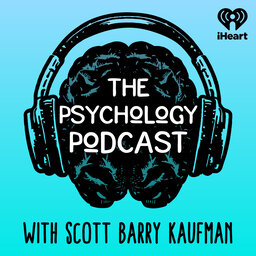The Man Behind The Mind Reader w/ Banachek
This week Scott is joined by "The World's Greatest Mind Reader", Banachek. Scott and Banachek discuss criticisms of self-described psychics, the link between psychology and magic, and Banachek's successful attempts to fool professional paranormal psychologists.
In 1 playlist(s)
The Psychology Podcast
In each episode, we talk with inspiring scientists, thinkers, and other self-actualized individuals …Social links
Follow podcast
Recent clips

End of an Era — Reflections on 11 Years of The Psychology Podcast w/ Annie Murphy Paul
46:52

How Mindsets Shape Reality w/ Dr. Alia Crum
1:00:24

The Gentle Power of Sisu w/ Dr. Elisabet Lahti
48:45
 The Psychology Podcast
The Psychology Podcast